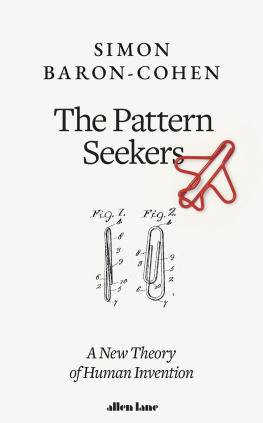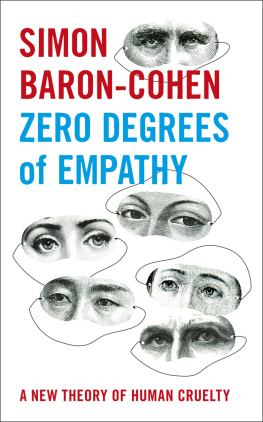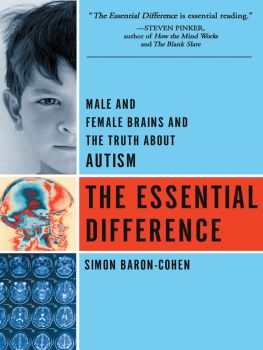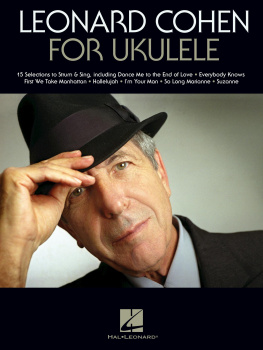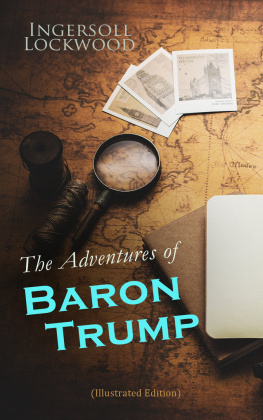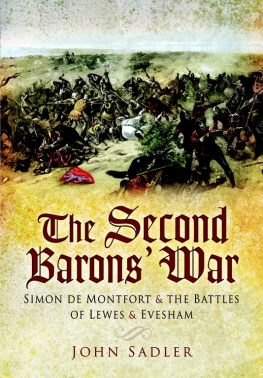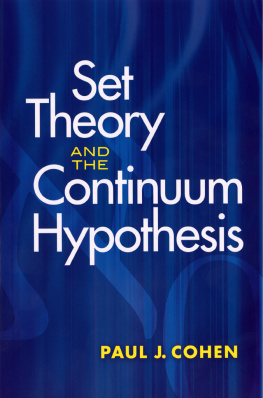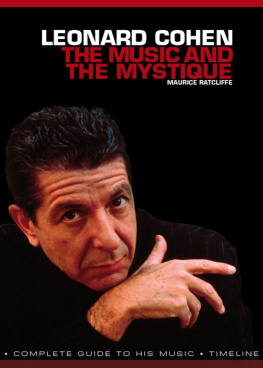Simon Baron-Cohen - The Pattern Seekers
Here you can read online Simon Baron-Cohen - The Pattern Seekers full text of the book (entire story) in english for free. Download pdf and epub, get meaning, cover and reviews about this ebook. year: 2020, publisher: Penguin Books Ltd, genre: Religion. Description of the work, (preface) as well as reviews are available. Best literature library LitArk.com created for fans of good reading and offers a wide selection of genres:
Romance novel
Science fiction
Adventure
Detective
Science
History
Home and family
Prose
Art
Politics
Computer
Non-fiction
Religion
Business
Children
Humor
Choose a favorite category and find really read worthwhile books. Enjoy immersion in the world of imagination, feel the emotions of the characters or learn something new for yourself, make an fascinating discovery.
- Book:The Pattern Seekers
- Author:
- Publisher:Penguin Books Ltd
- Genre:
- Year:2020
- Rating:5 / 5
- Favourites:Add to favourites
- Your mark:
- 100
- 1
- 2
- 3
- 4
- 5
The Pattern Seekers: summary, description and annotation
We offer to read an annotation, description, summary or preface (depends on what the author of the book "The Pattern Seekers" wrote himself). If you haven't found the necessary information about the book — write in the comments, we will try to find it.
The Pattern Seekers — read online for free the complete book (whole text) full work
Below is the text of the book, divided by pages. System saving the place of the last page read, allows you to conveniently read the book "The Pattern Seekers" online for free, without having to search again every time where you left off. Put a bookmark, and you can go to the page where you finished reading at any time.
Font size:
Interval:
Bookmark:

PENGUIN BOOKS
UK | USA | Canada | Ireland | Australia
New Zealand | India | South Africa
Penguin Books is part of the Penguin Random House group of companies whose addresses can be found at global.penguinrandomhouse.com.

First published by Allen Lane in 2020
Copyright Simon Baron-Cohen, 2020
The moral right of the author has been asserted
Cover images: Courtesy of United States Patent and Trademark Office; Getty Images
The authorised representative in the EEA is Penguin Random House Ireland, Morrison Chambers, 32 Nassau Street, Dublin D02 YH68
ISBN: 978-0-241-24219-3
This ebook is copyright material and must not be copied, reproduced, transferred, distributed, leased, licensed or publicly performed or used in any way except as specifically permitted in writing by the publishers, as allowed under the terms and conditions under which it was purchased or as strictly permitted by applicable copyright law. Any unauthorized distribution or use of this text may be a direct infringement of the authors and publishers rights and those responsible may be liable in law accordingly.
In memory of
Bridget Lindley
(19592016)
Who gave her love to our family
In dedication to autistic people
Sometimes it is the people no one can imagine anything of who do the things no one can imagine.
Alan Turing , The Imitation Game

Al didnt talk until he was four years old. Even when he started talking, it was clear he was using language differently to most kids. His mind was different right from the start he was less interested in people and more focused on spotting patterns, and he wanted explanations for everything he saw. He asked people incessant why questions, to understand how things worked. It was exhausting for his listeners. His unstoppable curiosity was at one level refreshing, yet his need for complete explanations was also often just too much for others. He was clearly a different kind of child.
He showed some other unusual characteristics too. For example, he would chant Thomas Grays Elegy Written in a Country Churchyard over and over (a habit that lasted his whole life). At school, his teachers became exasperated with his persistent questioning. One teacher, in frustration, described Als brain as addled, meaning confused. But Als mind was anything but confused. Rather, his relentless questions were requests for greater clarity because he found other peoples explanations of how things work vague. He wanted to build up an orderly, evidence-based picture of the world. From his perspective, everyone elses way of thinking was sloppy and imprecise.
But his mother was worried. She could see that her son was frequently being reprimanded in class and put down by his teachers, and she worried this would damage his self-confidence. She needed to act decisively. So, when he was eleven, she decided to pull him out of school completely and homeschool him. This was not a decision she took lightly. But given his insatiable appetite for knowledge and the school viewing him so negatively, this seemed the right thing to do. Her child had a right to learn in the way that suited his different kind of mind.
Free of the constraints of a conventional school, Als mother watched with amazement as her son devoured books at home and at the local library. When Al read an account of how something worked, whether it was in chemistry or physics, he would rush down to the basement of the house to conduct his experiments, to prove that the explanation was true. Free of school, he could finally pursue his passion for seeking patterns in the world without a teacher telling him to sit still, stop asking questions and do what he was told. Homeschooling was a liberating gift from mother to son. No longer imprisoned by group learning, Al could finally choose what, when and how to learn, through individual learning. This suited his mind perfectly, because he was never content to be told by a teacher how something worked, but instead always wanted to verify it. He needed to question all evidence and test things out for himself. His was a mind that didnt follow the crowd. Instead, he wanted to understand things from first principles, to check that his knowledge was true.
Als mother could clearly see that her sons learning style was different. Some described it as pedantic, obsessive, rigid, precise and exhaustive. For example, when it came to reading in the library, Al would start by reading the last book on the bottom shelf, then systematically read every book in the order it was on the shelves, not randomly jumping around the bookshelves. He would follow an unbending rule: one book at a time, in a strict, linear sequence, so he could be sure he hadnt missed any information. Even though he was most interested in scientific and technical books, he would never deviate from his rule. And he loved rules, because rules were themselves patterns.
By the age of twelve, Al had read Newtons Principia, taught himself physics, questioned theories of electricity and conducted his own experiments at home to see if they were right. By age fifteen, Al had become fascinated by Morse code, the ultimate language of patterns. And once he became interested in anything, he had to master it. He couldnt understand how most people would just dip into lots of topics superficially, since for him a topic had to be understood completely. It was all or nothing. He loved how in Morse code the same underlying message could be mapped on to patterns in a variety of ways, using auditory clicks, light flashes or written symbols. He loved how each letter was a unique sequence of dots or dashes, how a dot was a unit of time, and how a dash was equal to three dots in duration. He loved how a letter was like a musical note, some worth one beat, others two or four beats. He grasped the patterns intuitively he was a born pattern seeker.
When Al was sixteen, he left home. He wandered the country and discovered that his Morse code skills could earn him money, working as a telegraph operator. But at night he would follow his deeper interests, staying up till the small hours, still performing his moonlight experiments on whatever machinery he could lay his hands on. Just as when he was a child, he still loved taking things apart to see how they had been assembled, to see what controlled what. And then when he had done that, he was just as excited to reassemble them.
At age just sixteen, Al produced his first public invention. His automatic repeater was a device that could transmit Morse code signals between unmanned telegraph stations, so that anyone could translate the code when it suited them. And as we shall see, he would go on inventing right through his adult life.
Two-year-old Jonah was another child who, like Al, was not yet talking. But unlike Als mother, who stayed calm, Jonahs mother panicked. She was distraught that everyone elses kid was chattering away, so she took her little boy to a paediatric clinic to be assessed.
She watched anxiously as the paediatrician did various tests. The doctor could see that Jonahs mother was worried and thought it might help to show her a chart outlining how every childs language development is different. She turned to Jonahs mother and said:
Font size:
Interval:
Bookmark:
Similar books «The Pattern Seekers»
Look at similar books to The Pattern Seekers. We have selected literature similar in name and meaning in the hope of providing readers with more options to find new, interesting, not yet read works.
Discussion, reviews of the book The Pattern Seekers and just readers' own opinions. Leave your comments, write what you think about the work, its meaning or the main characters. Specify what exactly you liked and what you didn't like, and why you think so.

